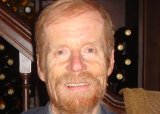 The man on the flagpole in Arafat Square was no nearer the top (see previous blog) and the mood in relation to peace talks is not hopeful. But the MA in child health at Al Quds in Jerusalem is making good progress after seven months of operation. We are now on the 4th module which is emotional and behavioural problems—the first taster on child mental health, a mystery to most Palestinian health professionals.
The man on the flagpole in Arafat Square was no nearer the top (see previous blog) and the mood in relation to peace talks is not hopeful. But the MA in child health at Al Quds in Jerusalem is making good progress after seven months of operation. We are now on the 4th module which is emotional and behavioural problems—the first taster on child mental health, a mystery to most Palestinian health professionals.
Our course, a partnership between the Royal College of Paediatrics and Child Health (RCPCH) and Al Quds medical school, uses self-directed learning and small group teaching. Two role play sessions illustrated the techniques. The students playing a hyperactive child disrupted the doctor’s communication with the “mother” quite effectively and in the second, a consultant played the father who is downplaying the likely autistic symptoms of his “son,” saying he is just “normal.” The doctor has to recognise and handle these different expectations, as the “mother” was extremely anxious.
The target group of the teaching is GPs and nurses in primary care, and a critical question is whether they will have opportunities to use their skills when the consultation time is only 5 mins. But the same problems affect UK GPs and perhaps the key is being able to have flexibility to bring some patients back for a longer consultation. We are anxious about whether the students will be able to change their situation after they are the proud possessors of an MA. Their ability to become effective child health professionals is a key outcome for the course and we now have a THET (Tropical Health Education Trust) grant to examine this very question, and there will be a workshop looking at possible outcome measures during the next UK tutor visit.
Politics always intrudes in this part of the world and this visit took place at a time of high tension in the middle east owing to the Syrian war—the Golan Heights are only 120 miles from where we teach. The fears which are ever present were demonstrated when I examined students’ portfolios. One section is on teaching attended, and the nurse had written about this one because it made such a big impact on her. The topic was how to respond to a chemical weapons attack and included how to make a home made gas mask, using charcoal bought at the local market.
I was also told that whilst all Israelis were issued with gas masks, this policy does not extend to Palestinians.
It was shocking to hear that such measures are being considered in clinics in a poor country where children are already dying from undernutrition and infection.
Fortunately, the risk of an attack by Syria on Israel has receded now that the guns of war of the West have been silenced. So maybe this bunch of bright doctors and nurses can get on with managing the ordinary family problems in their community, about which they are so highly motivated.
Tony Waterston is a retired paediatrician in Newcastle-upon-Tyne, working mainly in the community with long term conditions, disability, child abuse and social and mental health concerns. His interests are in child public health, children’s rights and global child health and he leads the RCPCH teaching programme in the occupied Palestinian territories.
